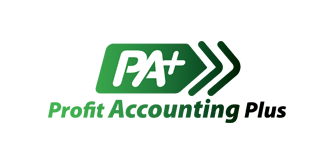The era of accounting with big clunky downloaded desktop applications or even clunkier spreadsheets is over. Finally.
In late 2013, Forbes columnist Gene Marks asked “Are cloud-based accounting apps ready for prime time?” In retrospect, we could safely respond to Mr. Marks with a resounding “Yes.”
As that article pointed out, for years QuickBooks Online is a “glorified bookkeeping application,” sitting alone, the only game in town. But if you’re accustomed to the old boxed retail versions of QuickBooks, you may be wondering “What alternative to QuickBooks is there?”
This truly is the era of the cloud, and that gives you many options to choose from when searching for a cloud-based alternative to QuickBooks. Cloud-based services are rising rapidly, in what feels a bit like a post-dotcom era tech revival.
The increased productivity, scalability and security offered by the cloud makes it an ideal home for accounting.
Why is that? What does the cloud offer that your hard drive doesn’t? Here, we’ll explore why the cloud edges ahead of local computing, and what it can mean for your accounting efforts. We’ll also look at a cloud accounting app – Xero – that distinguishes itself as a powerful alternative to QuickBooks Online.
Let’s get started!
Reason #1 to do Accounting in the Cloud: The cloud is more secure
If you haven’t figured out the glaring advantage to cloud-based computing and storage yet, it’s pretty simple.
If you rely on a specific computer, with its physical drives and processor, you rely on those items not to fail. The thing is: they do fail. Fans overheat. Processors routinely burn out. Hard drives grind to a halt. And what happens to your accounting documents then? What happens to the legacy software (like old school QuickBooks – we know some of you are still using it!) that cannot run on modern operating systems? What happens to your business without those things?
And that’s not to mention that when you store your accounting resources on physical media, you run the risk of losing it to unintentional damage or theft. Even the most reliable hard drive will succumb if it takes a strong enough hit, or worse, a swim.
The cloud wins here because it removes those risks by keeping your financial information securely mobile behind trusted firewalls, among other trusted cloud-based security measures. This makes it much more logical to manage your accounting purely in the cloud.
Reason #2 do Accounting in the Cloud: Cloud-based accounting is scalable
No matter if your business is a bootstrapped one-person operation or a multinational corporation, you want it to grow and increase revenue. This also comes with new costs to keep track of.
Your accounting app needs to grow alongside your business. If you run a small business with a handful of employees, you don’t need a costly premium version of a legacy application with steep recurring fees and tons of bells and whistles. If it’s just you, you don’t need payroll services. Your accounting needs to the right size for your business and then grow with you.
Cloud-based alternatives to QuickBooks are highly scalable. As your business grows and you take on new employees, you can take care of paying them by adding cloud-based tools. If your business expands its sales to reach other countries, you can scale up by adding cloud-based currency conversion.
If you don’t need any of those features, you don’t have to pay for them, by sticking with a starter cloud-based accounting app subscription.
Reason #3 to do Accounting in the Cloud: Cloud-based apps are always current
The cloud is a very dynamic concept. As developers introduce new cloud-based tools and resources, other cloud-based apps are updated to keep current.
It’s that spirit of collaboration that is most striking about the promise of accounting in the cloud. New payment management systems, human resource applications and document management and storage tools emerge all the time. Cloud-based apps integrate with new tools as they emerge, giving you great flexibility when choosing tools to use in your business.
Compare this with downloaded legacy desktop applications (or worse, spreadsheets) and you start to realize that accounting in the cloud is freedom – freedom to use the tools you’d like, where you like, without the confinement of closed legacy applications.
In the cloud, you never have to run manual updates or troubleshoot pesky problems resulting from an update. Cloud-based apps or Software-as-a-Service (SaaS) applications are updated by the developers who make them, in real-time, without you lifting a finger. No maintenance. No breakdowns. No hassle. Link them together once and sleep at ease at night as the vendors work tirelessly to keep them up and running harmoniously.
Of course, the big advantage to keeping your accounting app up-to-date is you never have to fuss around with trying to get software to work, freeing you up to focus on the actual accounting and other important tasks.
